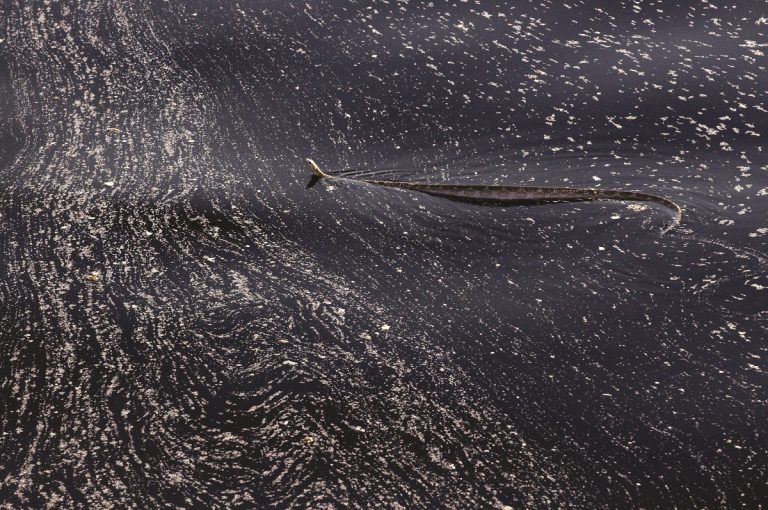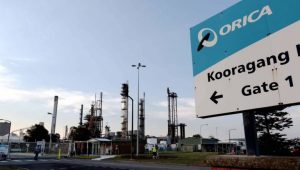Spill response has become a topical issue in Australia. From the infamous Montara oil spill in 2009, which is claimed to be the worst oil disaster in Australia’s history, to other spill incidents in the following years, it has become obvious how important spill prevention is to all businesses. Human error and small mistakes can inadvertently cause a disaster, especially if your business is inseparable from the surrounding natural environment, whether on or offshore. Consequently, potentially harmful effects from environmental impacts and on the livelihood of those living in the surrounding areas should be taken into account. Two major pollution incidents in Australia in 2009 and 2011 have had effects lasting years on both businesses and the environment.
 A sea snake swimming through the Montara oil spill (credit to WWF Australia)[/caption]
A sea snake swimming through the Montara oil spill (credit to WWF Australia)[/caption]
The first incident, one of the most controversial oil spill cases in Australia’s history, was the 2009 Montara oil spill in the Timor Sea. The spill resulted from a wellhead accident on the Montara oil field off the northern coast of West Australia, which was operated by the Thai oil and gas company PTTEP. The spill had minimal effects on Australians, but had a major impact on Indonesia, located on the northern side of the incident. One of the impacts of the spill was the destruction seaweed farms, and those who were affected by the spill are still seeking compensation nine years after the incident. The Australian Lawyers Alliance reported that the lasting effects of the oil spill are toxins threatening marine life including fish and birds, skin ailments affecting the coastal population, damage to the mangrove habitat, and a decline in revenue for fisherman and seaweed farmers located in the East Nusa Tenggara in Indonesia. PTTEP was fined $510,000 for the oil spill pollution incident.

The second major pollution incident happened in 2011. The chemical giant Orica eventually pleaded guilty to nine charges of hazardous chemical pollution at several of their sites in New South Wales. Some of the charges were related to the release of toxic hexavalent chromium steam and ammonia at the Kooragang Island facility, and the emission of mercury vapour at their Botany Plant site. All these incidents polluted the air and water near these sites, and the EPA said Orica was too slow in notifying the authorities about the leaks. Furthermore, two workers from a nearby business were hospitalised due to the leak from the Kooragang Island facility. Orica was fined $768,000 for these incidents, and the funds were to be spent on health and environmental projects in the Hunter and at Botany.
In order to minimise and control potential pollution incidents, you need to identify the risks on your site and train your staff in the proper implementation of your emergency management plan. It is always better to prepare and test your plan in advance, rather than just expecting it will work in an incident. Avoid fines and compensation claims by ensuring you are compliant - SpillShop provides an extensive range of spill response and containment equipment for your facility.


